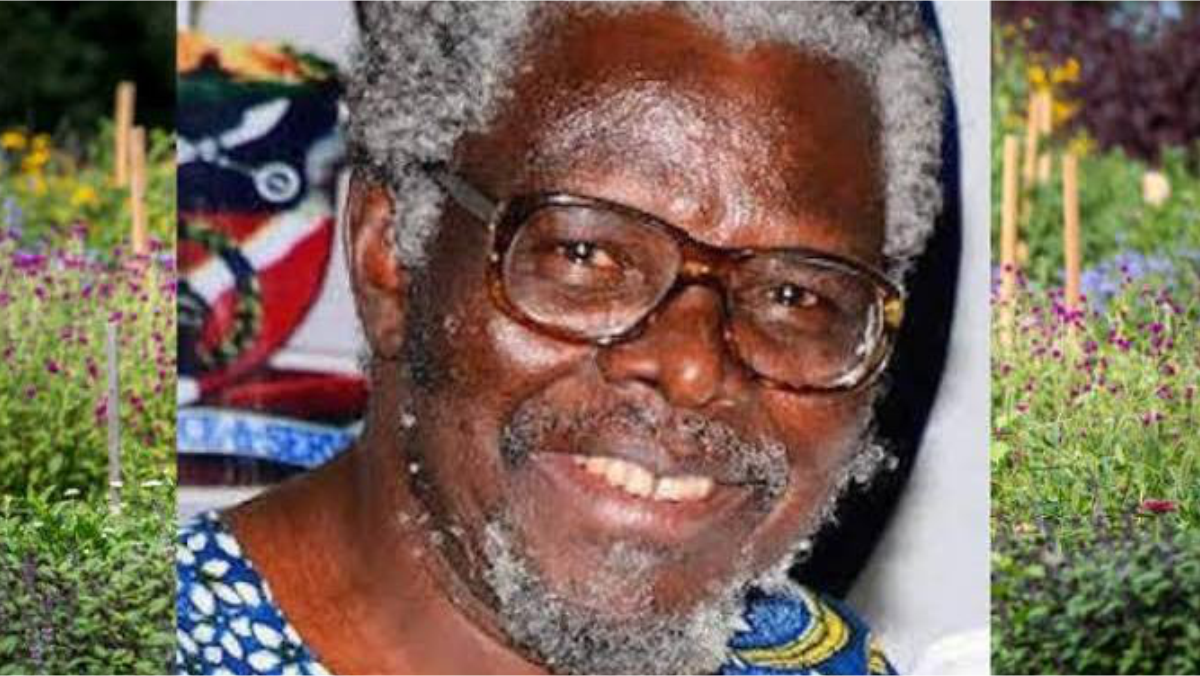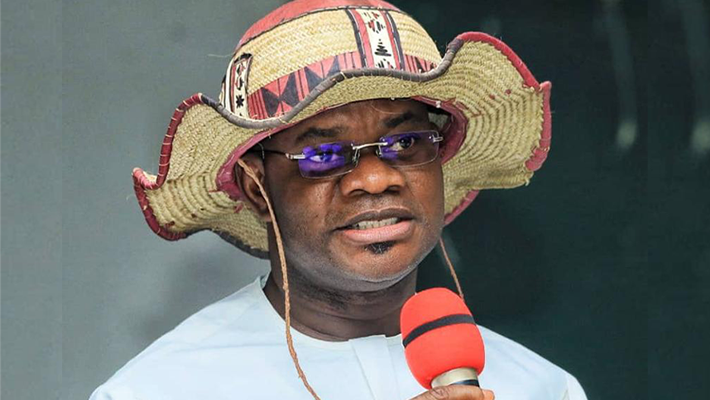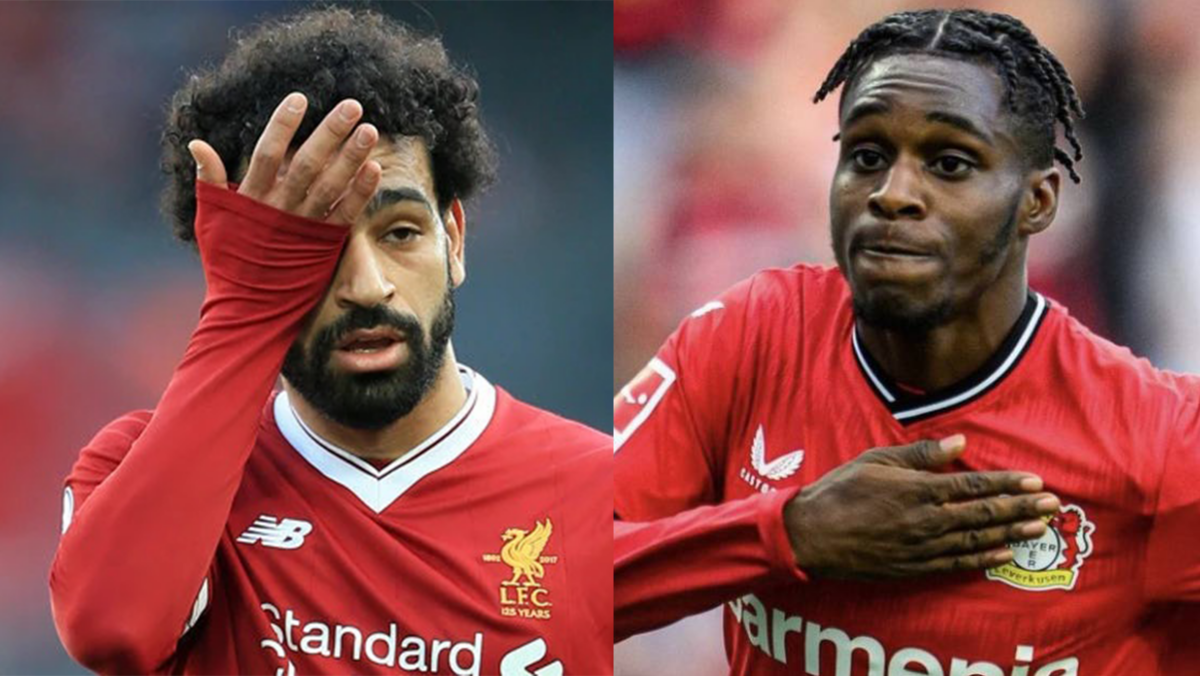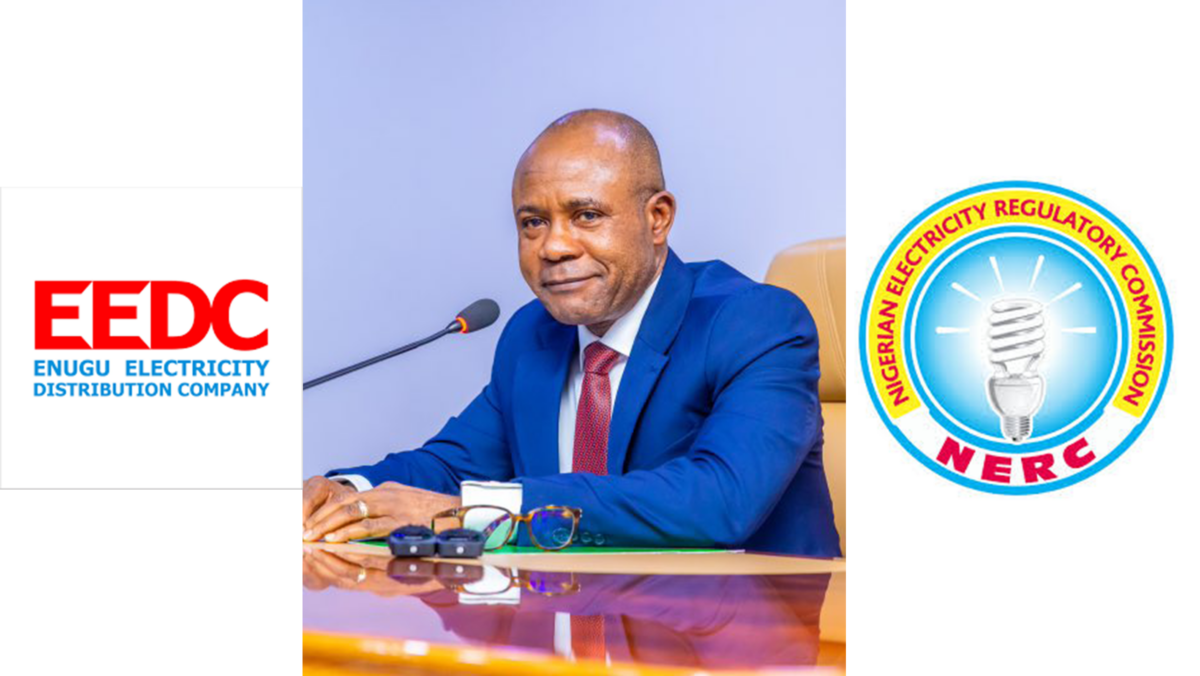Celebrating Edwin Madunagu at 75

On the day May Ellen Ezekiel (MEE), publisher of Classique magazine, a celebrity and entertainment journal, dumped me, Dr Edwin Madunagu picked me up.
I still remember the day Classique magazine parted ways with me for my inability to deliver a cover story in six months of trial employment. It was the death of a dream that started while studying Agricultural Engineering at the Federal University of Technology, Akure. It was a dream to be not just a journalist but to be a journalist like MEE.
I tried. I got several stories published but not anything big enough to be a cover story. I tried to find cover stories but being new in journalism and new in Lagos, I did not know where cover stories came from.
I traveled to Enugu to interview Major Humphrey Chukwuka, one of the five majors who planned the January 15, 1966 coup. I used all the Nnobi connections to reach the elusive former Nigerian and Biafran soldier. After much persuasion, he agreed to talk with me, but he still refused to say anything about the coup after more than a two-hour interview session. As a result, editors at Classique did not find the interview useful. I traveled to the University of Nigeria Nsukka (UNN) to attend Prof. Donatus Nwoga’s funeral.
I don’t remember now the story I was pursuing, but it was never published. I traveled to Awka Etiti, a town next to Nnobi, to investigate two assassinations – the December 1986 assassination of Justice Lawrence Anoliefo and the April 1990 assassination of businessman, Chief G.E. Chikeluba of the famed GMO group. My readiness to travel outside Lagos to find cover stories did not work out well.
I also spent weeks finding and knocking on doors of celebrities in Lagos, like Evi Edna Ogholi, seeking an interview. After weeks of trying, I finally got an interview with Yomi Adeyemi-Wilson, the child star with the 1990s popular TV series, “Third Eye.” I interviewed her at the set of the TV show, and the magic of television struck me right there and then. But despite my best efforts, the quality of my production wasn’t good enough for Classique.
On that final day, Samson Akanimo, a fellow reporter, also let go at the Classique, asked me to follow him to the Guardian newspaper to visit Dr. Edwin Madunagu. I had told Akanimo how limited my contacts were in the Lagos journalism circle. I also mentioned to him that even though I had never met Dr. Madunagu before, he was from my hometown. When I was leaving home for Lagos to pursue journalism, my folks told me about Madunagu. They presented it to me in the form of “in case of emergency, break the glass.”
It was emergency time. Still, I was horrified going to meet Dr. Edwin Madunagu, chairman of the Guardian editorial board. Just like every other consumer of news then, I read his famous Thursday columns in the Guardian. Madunagu’s persistent and consistent discourse on the dialectics between the proletariat and the bourgeoisie and how the Marxist philosophy stacked up against the capitalist system of ownership and labor was the most intriguing column in any newspaper in Nigeria. I had no understanding of what he was arguing about, week after week, but I was sure it must be imperative.
That first meeting with Dr. Edwin Madunagu is now fussy in my head, but I know he asked me to come back. And I did. He sent me down to the Guardian newsroom to be an intern. These were unpaid workers who learned by offering free labor to the newspaper. He wailed against that structure but felt it was a good place for me to start. So, every day, I went out in Lagos searching for news.
There was almost a zero chance that the story I would come back with would make it into the Guardian. But through the process, the intern was supposed to learn. The Guardian would give interns N50 a week for their trouble. Whenever I returned from my self-generated assignment, I would hang out with Dr. Madunagu in his office.
Over time, I started spending more time in his office than out in the field. At this point, I had joined others to see him simply as Eddie. Even though he had a secretary, I was acting as his unofficial office assistant. I helped him put together his past columns he was planning to publish into books. I watched him at work, dealing with the responsibilities of being the editorial board chairman of the Guardian.
It was a fascinating place to view the man Eddie and the media landscape of Nigeria. He allowed me to be present in most of his meetings. I was in Eddie’s office one day when a young Reuben Abati walked in. The Guardian had just hired Abati as an associate editor after his era at Hints magazine. In Eddie’s office, I also met a lot of prominent Nigerian influencers of that time.
For weeks, I was jostling from doing my unpaid internship work to assisting Eddie at his office. During my internship, I interviewed the human rights attorney, Olu Onagoruwa. It was the day that I vividly felt the power of the media. I had used my NYSC connection with a lawyer at his chambers to land the interview. The ever-busy Onaguruwa had dozens of people waiting for him when I came in. We agreed that I had 20 minutes for the interview, but the man kept talking and talking as we proceeded.
He was fascinated at my line of questioning, especially when I reminded him that President Ibrahim Babangida had locked up other activists except him. I had wanted to know if he was ready to be next. To my shock, the man squirmed. He asked me if I had heard anything. At that moment, his secretary walked in to remind him that his interview with me had lasted over one hour and that a chief was waiting for him.
“Let him wait,” Dr. Onugoruwa roared. “I am talking to the Guardian.” I never forgot that.
While helping out Eddie, I was also writing opinion pieces. Now and then, I would show them to Eddie for him to consider publishing in the Guardian. He would take them from me and always come back to me with the advice to go and find news.
“If I were your age,” he often said, “I would be in the bushes fighting.”
I did not give up writing opinion pieces, and Eddie did not publish any of them. For helping him out in the office, he often gave me N20 for transportation. It was big money, then.
Even though we were from Nnobi, Eddie hardly brought it up. And neither did I. We established earlier on that he didn’t know my parents, and I didn’t know his family. Despite that, I could still have called him uncle. But I didn’t. Eddie did not give me a vibe that it was acceptable. He was a humanist. His generosity was legendary. Every day, people trooped into his office for one assistance or the other.
He pointed those needs out to me as proof that the country had failed and that the economic structure had not favored the masses. Eddie was the epitome of the Guardian newspaper’s motto: “conscience, nurtured by truth.” Whenever I was on my way to the East, Eddie would ask me to stop at Benin and give money to his brother.
The few times Nnobi ever came out in our conversation was when he complained that his family members were troubling him to come and fight to secure the land he inherited. He said these were the same people looking up to him to assist them in taking care of their basic needs.
He wondered where he would find the money to start building anything on the land. He did not find it odd when he told me that his last time at Nnobi was in 1975 when his father died. He was satisfied with the roots he and his wife, Bene, had established in Calabar. He felt it was enough.
There was nobody like Eddie. As our relationship grew, he started to treat me sometimes like a son and sometimes like a protégé. He would walk me to the door of his office when I was leaving. Over time, he would walk me to the staircase of the Guardian’s Rutam House top floor overlooking Oshodi Market. He would point at traders in the market and tell me that they had no idea what was going on in their country.
On the days he left the Guardian before me, I would follow him to the Guardian’s 404 Peugeot delivery pickup that brought him to work and took him home afterward. He once walked me to the gate of the Guardian on my way out. I did not understand it then, but after that, nobody questioned me at the gate. They would always wave me through as I approached.
One day, Eddie felt that I was ready to strike out on my own. He gave me a note to Ifeanyi Ubabuko, the editor of the Daily Mail, Clarkson Majomi’s newspaper at Orile Iganmu, Lagos.
When I went to see Mr. Ubabuko at The Majomi House, I showed him Eddie’s note. He asked me what I studied, and I told him Agricultural Engineering. After asking me what I was doing hanging around newsrooms, he offered me a job as an Agricultural correspondent for the Daily Mail.
I doubted if any newspaper in Nigeria had an Agricultural correspondent then or even now. But I resumed. In the Daily Mail, I found a newspaper full of space and begging for talents. I started as an Agricultural correspondent, but soon I was covering Foreign Affairs. In a few days, I assumed the role of Energy Correspondent and Arts Correspondent. I was attending art exhibitions and covering energy news from NNPC headquarters in Lagos. I also started writing opinion pieces. I started publishing all those op-eds that Eddie did not publish in the Guardian. I was publishing an average of two pieces a week to the astonishment of the established staff of the Daily Mail. In no time, I created a two-page pullout on Arts in the Saturday Daily Mail. In it, I reviewed artworks, books, published poems, and carved out a column for myself that I called “Critics Choice.” With my own column, I was finally becoming like MEE.
Once a week, at least, I still stopped by Eddie’s office to give him updates. And whenever I did, we chatted like before and a little bit more like colleagues in the media. One day, I came in to see him, and he was petrified to see me. He asked if I told those at the gate that I was coming to see him. I was surprised at his unusual concerns. I told him that I was no longer required to write my name at the gate because the security men assumed that I was still an intern. That was when Eddie relaxed.
Then he opened my column in the Daily Mail and asked me why I wrote the column, “The Garbage of the Guardian.” He said that the management of the Guardian would think that he told me what was going on at the Guardian. I assured him that it was common knowledge around newsrooms across the country about how the management of the Guardian, most of whom were born-again Christians, treated interns. He thought about it and relaxed.
Six months after I started at the Daily Mail, the publisher, Clarkson Majomi, named me an editorial board member. I was twenty-one years old. I joined some old journalists to attend editorial board meetings and to write editorials. I told Eddie about the development. He agreed that I would keep my energy beat, art pages, and keep writing my opinion pieces despite the promotion. And that was exactly what I did.
The first two troubles I ran into writing my column, I did not tell Eddie. One was when I wrote, “The Reporter’s Sin.” In it, I chastised Babangida’s administration over the closure of the Reporter newspaper for not toeing the government line. It was published the same day that Daily Mail published an Aso Rock-written editorial from Babangida’s Press Secretary, Duro Onabule, supporting the closure of the newspaper.
Even though I passed my work to him, my editor, Ubabuko, did not read the piece before publication. After berating me, Ubabuko warned me that the next time I wrote something controversial like that he would not defend me. He started reading all that I wrote before approving them for publication.
Then one day, when Ubabuko thought that time had cured my madness, he relented in his scrutiny of my work. And that was the day I wrote an open letter to Major Gideon Okar, the man who planned the 1990 military coup against Babangida. In the letter, I told the executed coup plotter that he was right about the reasons he gave for his coup. I told him that two years after his coup, the situation in the country had become unbearable.
On a bright day in May, while I was attending a UNESCO-sponsored conference on democracy at the Nigerian Institute of International Affairs in Victoria Island, I got an urgent message from Majomi, the publisher of the Daily Mail newspaper. In the message, Majomi wanted me to take the next available taxi to his house on Adetokunbo Ademola Street in Victoria Island. I did not know his house in Victoria Island. I took a Molue bus and returned to the Daily Mail office at Orile Iganmu.
At the office, security men at the gate informed me that the publisher had given an order not to let me get into the building complex. He had instructed that I should turn around and come to his house. The gatemen also told me that the publisher summoned all the senior editors to his house in Victoria Island. My friends in the newsroom came down to the gate and broke the news of my firing.
They said I should just lay low while they appealed to the publisher to pardon me. They showed me a letter they drafted, which they wanted everyone in the newsroom to sign. In the letter, they blamed the cause of my infraction on “youthful exuberance.”
After eating lunch at a nearby buka with a secretary who loved me, I rushed to see Eddie at the Guardian. I was sure he would find a solution to my problem as I relayed to him what happened to me. Without saying a word, he brought out a copy of the Daily Mail newspaper and read my “offensive” column. When he finished, he said to me, “What were you thinking when you were writing that at the Daily Mail? Did you think that Clarkson Majomi would pat you on the back and say, well done, my son?”
On May 15, 2021, there will be a virtual conference to celebrate Edwin Madunagu at 75. The theme is “Progressive Politics as the Answer to the National Question- Problems and Prospects.” Professor Yakubu Ochefu will give the keynote speech, Odia Ofeimun will chair the occasion, while Ngozi Iwere and Ene Obi will be the discussants. Dr. Sola Olorunyomi will showcase a cultural presentation. They will all be gushing about Eddie, their comrade.
As for me, Eddie is my uncle, in whom I am well-pleased.
We have recently deactivated our website's comment provider in favour of other channels of distribution and commentary. We encourage you to join the conversation on our stories via our Facebook, Twitter and other social media pages.
More from Peoples Gazette

Politics
Katsina youths pledge to deliver over 2 million votes to Atiku
“Katsina State is Atiku’s political base because it is his second home.”

Anti-Corruption
N80 Billion Fraud: Nigerian immigration issues nationwide red alert for officers to nab Yahaya Bello
He refused to surrender himself for arrest on Wednesday when anti-graft operatives besieged his Abuja residence.

Health
Mysterious illness claims eight lives in Sokoto
The incident occurred at Sabon Birni and Isa Local Government Areas of the state.

Hot news Home top
Liverpool knocked out of Europa League by Atalanta; Bayer Leverkusen tango Roma in semifinals
Atalanta’s wonderful performance over the two legs ensured the Italian side reached the semifinals of the Europa League on a 3-1 aggregate scoreline.

Heading 5
Enugu govt. cautions NERC, EEDC against overcharging electricity consumers
I urge NERC not to derail on the steady and quality power supply according to the band classifications.”

Uncategorized
N3.2 trillion subsidy needed to reverse electricity tariff hike: FG
He added that as a result of the non-payment of subsidy, gas supply and power generation had continued to dip.

Heading 4
Google sacks 28 employees for protesting consulting contract with Israel
The company further noted that the demonstrations were staged “by a group of organisations and people who largely don’t work at Google.”








